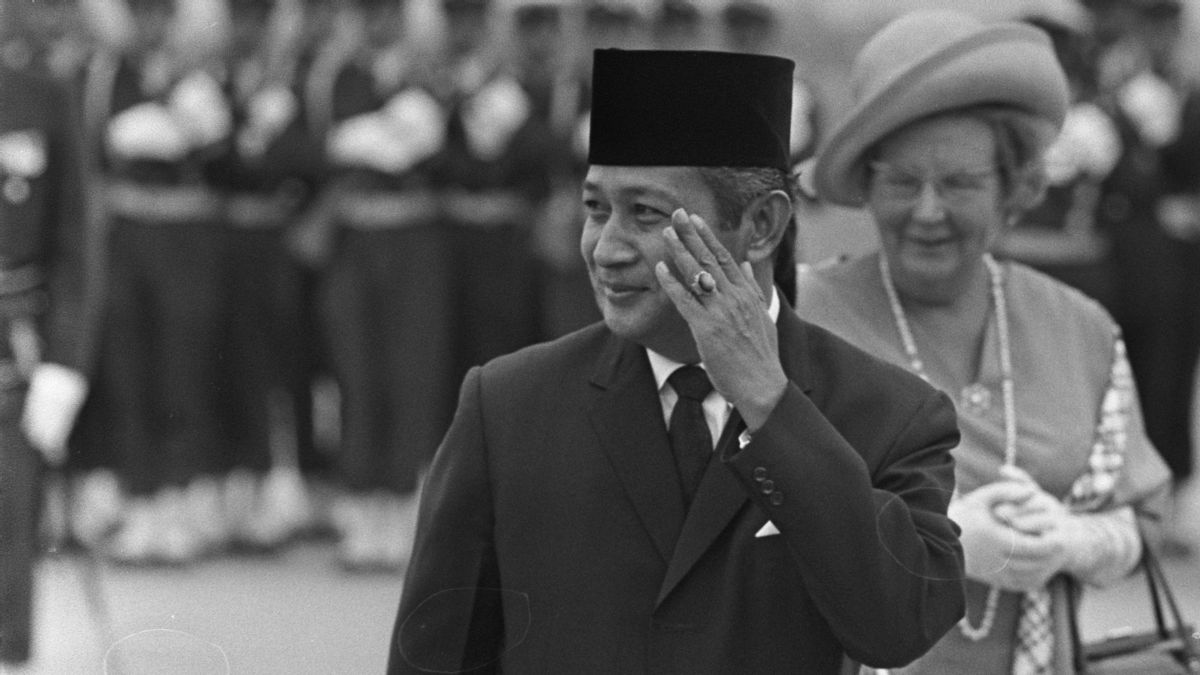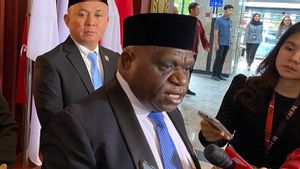JAKARTA - The COVID-19 pandemic has shaken the economies of world countries. 14 countries have declared recessions, including the United States, Germany, France and Thailand. Now the storm of recession is also threatening Indonesia. Not a first for Indonesia. In 1998, the recession had also slumped Indonesia.
Thailand is one of the countries in Southeast Asia that has recently fallen into the brink of recession. Thailand's economic growth plunged for two consecutive quarters. Kompas.com explained that the main contributor to Thailand's recession came from the quiet trade and tourism sectors.
The National Economic and Social Development Council announced that Thailand's economy now recorded minus 12.2 percent in the second quarter of 2020. In the previous quarter, Thailand was minus 1.8 percent.
"We are worried about the (Thai) economy, particularly labor absorption, bad debt, and SMEs. Government spending is still the key to driving the economy this year because all driving sectors are still weak," said Thosaporn Sirisumphand, Secretary General of the Thai National Economic and Social Development Council. .
Not only Thailand. The condition of the economic downturn was present in Indonesia as well. Executive Director of Indef Tauhid Ahmad explained that Indonesia has actually experienced a recession when referring to the projected economic growth throughout the year issued by the government. We just have to wait for the official announcement from the authorities.
"If we take the midpoint it is minus. Our economic growth is minus 0.5 or 0.4 percent. This means that in the third quarter it is still negative. If it is still negative, because we have been negative for two quarters in a row, it will be a recession. "The statement of the growth figures means that the government has actually acknowledged that a recession will occur, especially in the third quarter," he told VOI, Tuesday, August 18.
The rise of the New Order from the recession of the 1960sPreviously, we reviewed the first recession experienced by the Republic of Indonesia through the article "Learning from the First Recession Experienced by the Republic of Indonesia".
The transition of the Old Order to the New Order in 1966 leaves many stories. The transfer of power did not necessarily make conditions in Indonesia run well, because the New Order left behind a number of crises. Quoted by Syaifruddin Jurdi in the book The Political Power of Indonesia (2016), the crisis took the form of an economic crisis with high inflation, depleted foreign exchange reserves, government budget deficits, and ideological conflicts which were grouped into three trends: nationalist, Islamic, communist. .
“The legacy of the previous regime is a double-faced crisis, namely crises in the economic and political fields. In terms of the economy, there are deteriorations and stresses. In 1966 the inflation rate reached 650 percent. The crisis in the economic sector was exacerbated by a crisis in the political sector, instability occurred due to conflicts between political groups in society, "wrote Syaifruddin.

The Soeharto government then adopted a policy of outward-oriented economic development and created a new political system, namely a political system that could support economic development. Soeharto gathered a number of economics graduates from FE-UI and USC Berkeley. In an instant this "Berkeley Mafia" has demonstrated its gripping inflation brake. Then, the pace of Indonesia's economy climbed to 8 percent a year for a quarter of a century.
"Indonesia is considered as the only successful" oil "country in the 3rd world. Other oil-producing countries in poor parts of the world have not succeeded in developing their economies like Indonesia. Then, Indonesia was flooded with the charisma of "the smiling general." The moral of this past tale is that charisma is not a character, but simply the end result of a series of achievements, and that a crisis manager does not need to have charisma, "said Nono Anwar Makarim in his writing in Tempo Magazine entitled Karisma dan Krisis (2000).
The 1998 recession marked the fall of the New OrderDear. As the saying goes, that the wheel turns. Likewise, the economic triumph that the New Order had received, which then began to fall into the brink of the worst recession from 1997-1998. Kompas Daily Newspaper, December 21, 1998 revealed that the economic recession that occurred in 1998 had started a year earlier.
At that time, Indonesia's economic growth was minus for six months in 1997 and this minus continued until the first nine months of 1998. It was so bad that the government had to ask for help from the International Monetary Fund (IMF) in October 1997. Although it was recently known that this assistance was not enough help Indonesia.
Nevertheless, the cause of the crisis allegedly originated from the bath exchange rate crisis in Thailand on July 2, 1997. Later, it would quickly become the trigger for the economic crisis in Southeast Asia. As a result, the rupiah exchange rate to the United States dollar (US), which was still at Rp.4,850 in 1997, grew to around Rp.17,000 / US dollar on January 22, 1998.
So, the impact of the recession is huge. the foundations of the economy in Indonesia collapsed, tens of banks collapsed, thousands of companies collapsed, millions of workers lost their sources of income, so that Indonesia became weak, even almost bankrupt.
This condition forces the public, especially students to take to the streets to carry out massive protests. They are demanding the removal of President Soeharto because he is responsible for the 1998 recession which made the Indonesian people suffer. Finally, President Soeharto resigned on May 21, 1998 and BJ Habibie was asked to become the new president.
The English, Chinese, Japanese, Arabic, and French versions are automatically generated by the AI. So there may still be inaccuracies in translating, please always see Indonesian as our main language. (system supported by DigitalSiber.id)









